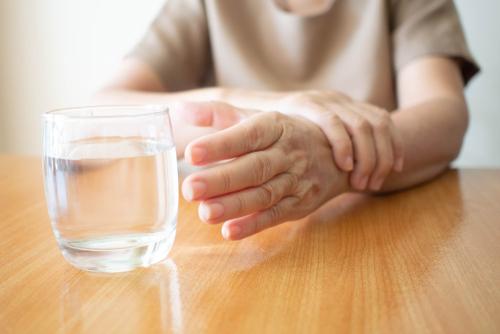Parkinson's disease

What is Parkinson's or Parkinson's disease?
Parkinson's disease is a disorder of the nervous system, where neurons are affected in a particular area of the brain responsible for dopamine production, which leads to a series of disturbing symptoms, where tremor begins gradually until the patient loses control of movement.
What exposes a person to Parkinson's disease?
Some risk factors expose one person more than the others to develop Parkinson's disease, including:
1- Ageing; as a person ages, the greater the risk of developing Parkinson's, and the symptoms often begin to appear at the age of 60 or older.
2- Genetic factor or genetic predisposition; the presence of a family member with Parkinson's increases the likelihood that another person from the same family will develop Parkinson's as well.
3- Being a man increases the risk of Parkinson's disease, as men are more likely than women to develop Parkinson's disease.
4- Exposure to toxic substances such as pesticides and agricultural pesticides may increase the likelihood of Parkinson's disease.
Symptoms of Parkinson's disease:
1- Shaking or tremors that most likely occur in the fingers and hands.
2- The patient will suffer from the slowness of movements, as it takes a long time to perform some simple tasks.
3- The patient may experience a balance problem, as well as a stooped posture.
4- The patient may suffer from stiffness and muscle pain that leads to limiting the range of movement of the body.
5- The patient's ability to perform involuntary movements such as moving the arms while walking, smiling, or even blinking will be reduced.
6- The patient will have difficulty with the writing patterns, as the movement of the hand allows writing in a smaller size than usual.
7- The pattern of speech will also change.
In case of a person suffering from one or more of the symptoms previously mentioned then a consultation with a neurologist is a must to perform the necessary tests and start with the appropriate treatment.